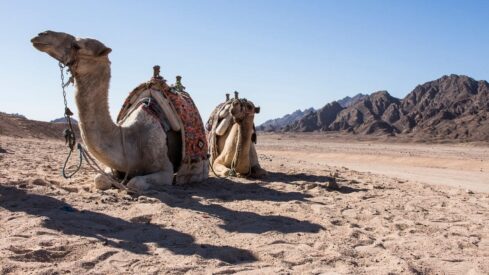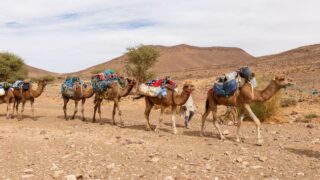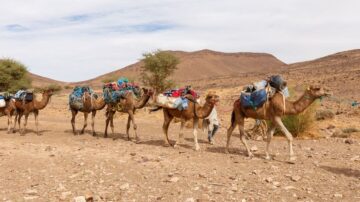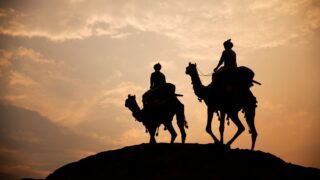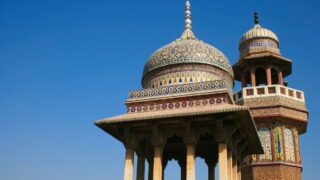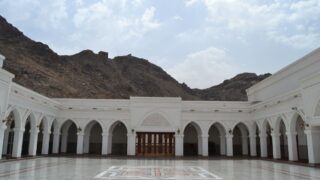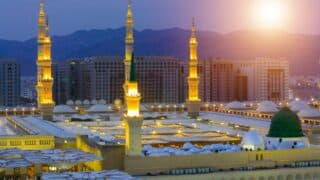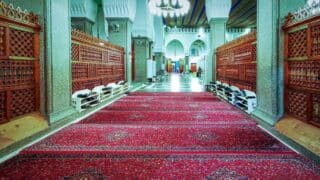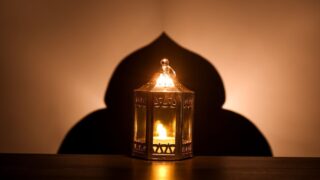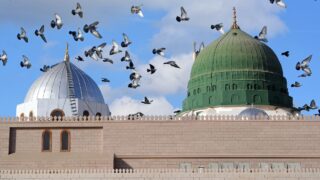Prophet Hijrah
The Muslim calendar, based purely on lunar cycles, was first introduced by the second Caliph, `Umar ibn Al-Khattab using the event of Hijra
From a historical angle, all of the events and celebrations of Islamic history are recorded in the Hijra Calendar
Indeed, there are many causes behind naming months of the Islamic calendar as such. In what follows we will try to shed some light on some of those causes: 1. Muharram: is named so because the Arabs used to prohibit fighting during it. 2. Safar: is named so because the Arabs used to leave their
Although Muslims do not actually celebrate the Muslim new year in the way other people celebrate their respective new year, the first day of the lunar month of Muharram is a legal holiday in many Muslim countries. The Islamic calendar is counted from the year of Prophet Muhammad’s flight from Makkah to Madinah in September
Part of the lessons learnt from the first Hijra, was the fact that it gave Muslims the opportunity to establish Islam across the globe.
Abu `Ubaidah is one of the ten Companions who were given the glad tidings of entering Paradise.
Abu Bakr was known for his good, upright nature, honest and truthful. This manner won him the friendship of young Muhammad (pbuh)
The Prophet (Pbuh) stayed in Abu Ayyub's house for almost seven months from the period he entered Madinah until his mosque was completed
Asma’ bint Abi Bakr belonged to a distinguished Muslim family. Her father, Abu Bakr, was a close friend of the Prophet and the first caliph.
The strict honesty of the Prophet was one of the characteristics that led Salman to believe in him and accept Islam.
Al-Bara' ibn Malik Al-Ansari, the brother of Anas ibn Malik, the personal aide of the Prophet (Pbuh). He was a brave and courageous hero.
the Prophet (Pbuh) chose Mus`ab to be his "ambassador" to Yathrib to teach a small group of believers who had come to pledge allegiance to Islam.
Ja`far had a very close resemblance to the Prophet, and stayed with his uncle Al-`Abbas until he was a young man.
Mention is often made of the Companions of the Prophet (peace and blessings be upon him). Just who were they and why are they so important? A Companion is anyone, man or woman, who met the Prophet (peace and blessings be upon him)—whether for a short or long period—and who died while still Muslim. Many
History testifies to the unprecedented deeds done by Umar ibn Al-Khattab, from the time he embraced Islam and throughout his life.
Understanding the system of Mu'akhah (brotherhood) among Muslims in Madinah and how the Prophet successfully established it.
The Ansar did more than open their homes and help the Muhajirun financially. They did more.
After arriving in Madinah the Prophet (Pbuh) turned his attention to cementing the ties of mutual brotherhood among the Muslims
The brief narration of the Prophet's hijrah (migration) to Madinah after getting Allah's permission.
The Prophet's approach in dealing with two very different societies, the Makkan society before Hijrah and the Islamic society in Madinah.
The Hijrah, the migration of the Prophet (peace and blessings be upon him) and his companions from Makkah to Madinah, is one of the greatest landmarks in the history of Islam. It is a unique event in the history of humankind. The Hijrah that marks the beginning of the construction of an ideal Islamic society
Part of lessons taught from the hijrah (migration) of the Prophet Muhammad to Madinah is the hijrah of hearts.
The article shows the series of persecutions against Muslims in Makkah, and how the whole thing started.

